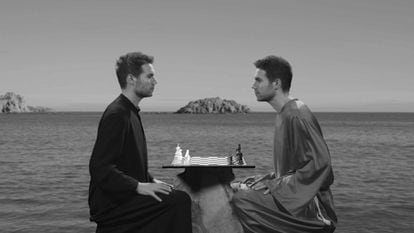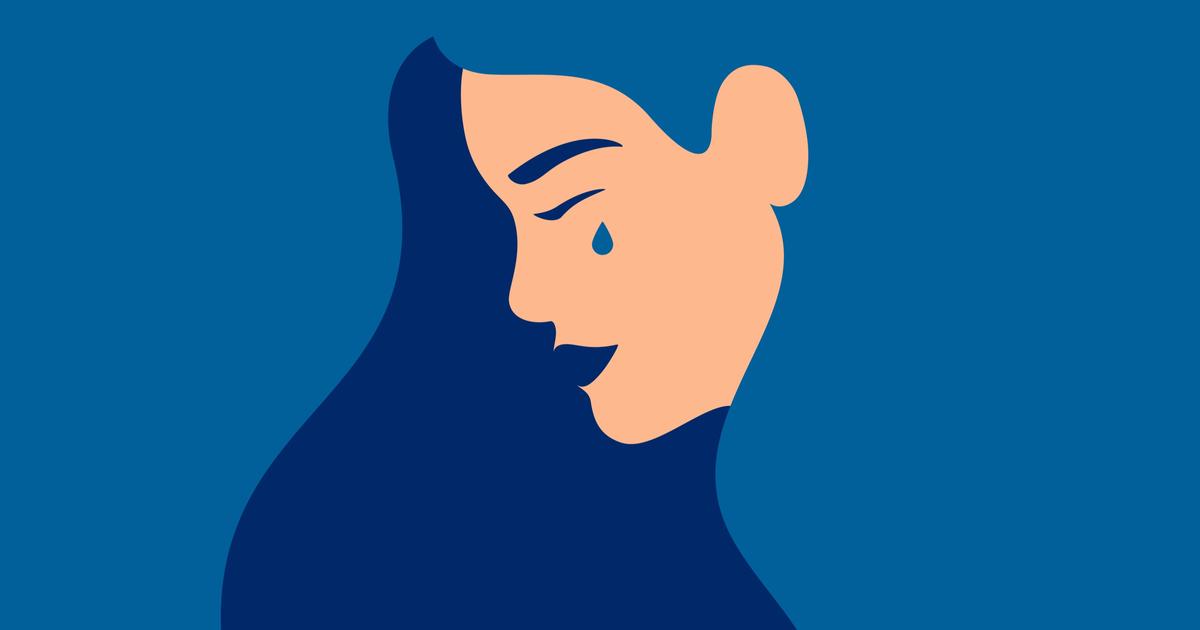Telling the history of philosophy in a television program is very difficult.
It is difficult to explain abstract concepts, such as Plato's ideas, or show complex ideas, such as the difference between traditional authoritarian societies and Hannah Arendt's 20th century totalitarianism.
It is so difficult that Oriol Jara, director of
This is Philosophy
, assures that he was about to abandon the idea.
Álvaro Carmona, presenter and candidate for an international Emmy for his series
People Talking
,
adds that he recently met one of the show's writers, Elisenda Pineda:
“He told me it was the hardest thing he had ever written in his life.”
And how did they do it?
There are many ways to approach philosophy.
You can opt for Michael J. Sandel's dialogues in his Harvard classes or in the documentary series
The Great Debate
, for example, or organize interviews and discussions with other thinkers.
This is Philosophy's
solution
was to respect the format of Brutal Media, which has also dared with opera and art, and with which they want to explain cultural issues with the resources of entertainment.
The program premiered on Monday, January 10 on La 2 and every week at 8:00 p.m. it dedicates half an hour to one of the great thinkers of history.
The series started with Plato, and the Athenian will be followed by names like René Descartes, Jean-Jacques Rousseau, Immanuel Kant and Hannah Arendt.
These were some of the decisions they made to approach these philosophers:
1. Ideas can also be potatoes.
Jara says that the revelation moment was when they were considering the Descartes episode and saw that it was not going well for them. They realized that the best way to approach their work was to leave Eduardo Acín, a producer and philosopher by training, in charge of the theoretical part, so that the scriptwriters could work more freely on how to present those concepts: “We let go more, We went to show much more visual examples without fear”, not only with the games and metaphors that they pose, but also shooting outdoors. And so the series explains what an idea for Plato is with different types of potatoes (how would you define an ideal potato?), what Arendt thinks about totalitarianism staged in an ideological supermarket, or the ideas of Marx analyzed from the former model prison in Barcelona.
2.
Matrix
is philosophy.
The series has nods to daily life, such as the comparison between the unreality of Plato's world of shadows and our mobile addiction, as well as references to contemporary pop culture, such as the analogy between the unreal world of Descartes' evil genius and the simulation of the
Matrix movies
.
The goal was to find the best way to explain these ideas so that they would be understood and remembered, showing them in an attractive way, as Jara explains.
But that does not mean that they have had any intention of simplifying: Jara assures that it has been key to have not only Acín as a producer, but also the advice of the philosopher Jesús Zamora Bonilla. "They controlled all the content so that we didn't say anything nonsense." Both wanted the show to be "a history of ideas and philosophers."
3. Scholasticism is
rock and roll
.
The program not only wants to explain the ideas of attractive or well-known authors to the public, such as Arendt or Nietzsche, but also to offer a complete and coherent panorama of the history of philosophy, which includes not ignoring the darkest ideas of these thinkers, such as Plato's totalitarianism, or dedicating a program to Thomas Aquinas and Averroes because "scholasticism had to be there", as Jara explains.
Precisely Aquino is the author who has surprised Carmona the most, because of the distinction he proposes between faith and reason, especially coming from a religious: "It seems like
rock and roll
."
Jara mentions Marx's as his favorite episode: “It's fascinating.
I think it will be very surprising how Marx talks about current things and helps us understand why our life is the way it is and why we pay the rent we pay and why work is paid as it is paid.
For Jara, the main theme of Marx is freedom: "We think we are free, but this freedom is only apparent."
Álvaro Carmona paying tribute to Bergman in the program dedicated to Thomas Aquinas
4. Aristotle was a zoologist and Descartes was also a mathematician.
The program does not renounce talking about knowledge as a whole, including the opinion of mathematicians, such as Bartolo Luque, and physicists, such as Juan Ignacio Latorre, for example, as well as philosophers such as Simon Blackburn, Cristina Sánchez, and Concha Roldán. Carmona recalls that "the idea of compartmentalized knowledge is quite modern." Jara adds that "philosophy is not an isolated discipline that only philosophers do", but is related to everything we know and want to know. To give an example, in Plato's program, the philosopher Simon Blackburn explains that his theory of ideas is a way of looking for the natural laws behind appearance, which in the end is what science does.
5. Philosophy is necessary and also uncomfortable.
Jara assures that directing this program has changed his life, “and it's not a joke. It has radically expanded my world.” The director believes that the program has opened "sometimes disturbing and sometimes satisfying questions." "Professionally," he says, "it's the best thing I've ever done." In his opinion, philosophy is always useful, but it is also “inconvenient. We live in a society that highly prizes certainty and little doubt”. Philosophy questions, for example, the economic system, the existence of God or our own nature, raising questions that we have often never asked ourselves. He questions everything, including ourselves, "what we don't usually like too much".
Carmona agrees with him and does so by denying that philosophy is more important today than ever, as it is sometimes said: “It is exactly as important as it was three hundred years ago or the same as it will be in a thousand” because we will always ask ourselves questions.
“Philosophy is necessary.
It is not even current, it is eternal.
And he adds: "What fails philosophy is
marketing."
You can follow EL PAÍS TELEVISIÓN on
or sign up here to receive
our weekly newsletter
.





/cloudfront-eu-central-1.images.arcpublishing.com/prisa/NFEP4XWK65ANJCQWICVNZN6PWE.jpg)

